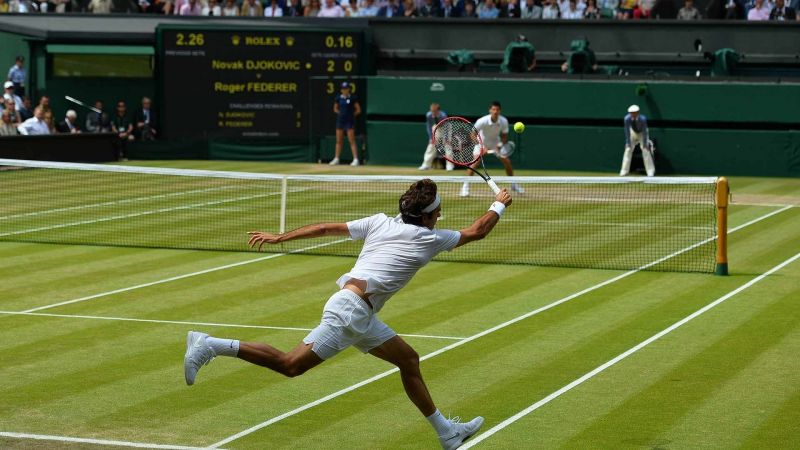Wimbledon 2019: The importance of a mind coach explained

The expectation of an athlete to deliver in every crunch situation is best understood by their coaches. While the primary coach takes care of improving the player’s on-court skills, it takes a mind coach to ensure they are in the right headspace. In the 2005 Australian Open men’s semifinals, the defending champion Roger Federer was up a match point against Marat Safin in the fourth set tie-breaker. For some reason, he chose to hit the tweener shot which looks great for entertainment sake if it comes off well. Unfortunately, it didn’t that day. Roger lost that point and went on to lose the match in a fifth-set thriller.
Was it an instinctive moment of play? Did Roger actually think he can pull it off? Or was it something that even players can’t justify due to a cluttered mind?
No interaction allowed
Tennis is probably the only sport where a player is prohibited from interacting with his or her coach during the entire match. Although interaction is allowed in the team format (Davis Cup) and has been tried a few times in the Women’s tour, it has stirred debates by purists that an individual sport does not need on-court coaching. A player is good enough to battle it out by themselves is what they opined.
Very often, it has been observed that in the initial stages of the match there is a thorough way of handling things mentally. But, as the match progresses into a tough battle, things start to change both physically and mentally.
The longest tennis match in history lasted 11 hours and five minutes between John Isner and Nicolas Mahut at Wimbledon. The question being – what is the mindset in such situations? How can your mind not be cluttered?
“Although this is a unique rule in tennis, a player needs to be taught early on to accept the ground rules of the sport and be educated on a mental process to deal with it effectively” says Arjun Gautham, a mind coach who works with elite players.
Role of a mind coach
When the game is on, there is constant pressure and uncertainty through different passages of play. A mind coach helps the player with the overall ‘mind map’ planned prior to each game.
“Even after a tough point, players can be taught to be aware of re-grouping themselves to stay fresh for next point. The scoreboard can be a distraction sometimes and players drift into the score or situation instead of executing their planned strategy,” says Arjun Gautham. The success of a player is a function of their ability to apply both their mind and muscle within the context of the game (conditions, scoreboard, opponent and their skills) and then make the necessary adjustments to their game.
“This could at best be termed as maturity of the player to use whole self rather than just the muscle memory. Besides these, a mature player is able to intuitively make choices in the present to steer the game in their direction.” says Sairamesh, an ICF-Master Certified Coach who has worked for two decades on performance management of individuals.
Starting early
From a young age, it is important to instil a player’s understanding of his or her expectations from every match. A mismatch in expectations can lead to experimenting untested solutions during a match and cause further problems down the road.
Quite often, parents or coaches look at things black or white, purely based on the end result. If such pressure gets imposed, the on-court game starts to get suffer as the player’s mind starts to wander on needless matters like selection trials, weather interruptions, crowd behaviour etc.
“In majority of the instances, a junior player receives coaching tips from several quarters – Parents, Skill Coach (Academy) and others around them. While the enthusiasm and encouragement is appreciable, it may not be aiding the player development long-term. The key is to create awareness through self-observation and assessment with the help of a professional Mind Coach” says Sairamesh.
Although a spectator may not notice, most players have a set of rituals – ball bounce, towelling off, taking a deep breath, adjusting the racket strings and so on. While it appears like a routine, that could be exact moment of calmness they need. This allows them to anchor themselves again to prepare fresh for the upcoming point. And who knows, the next shot could even be a winning tweener!
